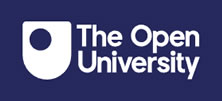Course Summary
This certificate changes how you think about situations, introducing you to appreciating multiple perspectives and working collaboratively on problem situations
College Link
Career Sectors
This course prepares you for working in the Career Sectors below. Follow the links to get a fuller understanding of the sectors you are preparing for.
Entry Requirements
There are no entry requirements for this qualification.
However, some option modules do have entry requirements. We�ll ask you to prove you meet them when you register for any of these modules:
Financial markets and the financing of organisations (B815)
Managing in a changing world (B870)
Creating and sustaining value (B872)
Principles of social and psychological inquiry (DD801)
Although this qualification has no entry requirements, we recommend you have:
A UK honours degree (or equivalent).
Minimum IELTS (International English Language Testing System) scores of:
Reading: 5.5
Writing: 5.5
Speaking: 5.5
Listening: 5.5
Overall: 6.0.
Application Details
See Course Web Page link for next start date.
Fees
The Student
Career Interests
This course is typically suited for people with the following Career Interests. If these interests do not describe you, this course may prepare you for work you may not find satisfying.
Realist
Realists are usually interested in 'things' - such as buildings, mechanics, equipment, tools, electronics etc. Their primary focus is dealing with these - as in building, fixing, operating or designing them. Involvement in these areas leads to high manual skills, or a fine aptitude for practical design - as found in the various forms of engineering.
Realists like to find practical solutions to problems using tools, technology and skilled work. Realists usually prefer to be active in their work environment, often do most of their work alone, and enjoy taking decisive action with a minimum amount of discussion and paperwork.
Investigative
The Investigative person will usually find a particular area of science to be of interest. They are inclined toward intellectual and analytical activities and enjoy observation and theory. They may prefer thought to action, and enjoy the challenge of solving problems with sophiscticated technology. These types prefer mentally stimulating environments and often pay close attention to developments in their chosen field.
Career Progression
The knowledge and skills developed through this postgraduate certificate course will provide benefits in a wide variety of economic sectors to you as well as to your employers or other organisations. Applications exist in any organisation where complex processes exist and where a change is required, including, for example, health services, environmental and development management, manufacturing and IT. Managers at all levels will find the ability to approach complex problems from a systems perspective to be a useful addition to their management and leadership skills portfolio. If you are self-employed you may also find the knowledge developed enables you to take a more objective and innovative view of the systems you have already created and how to change these for the future.
Duration
How long it takes
Most students study the Postgraduate Certificate in Systems Thinking in Practice part-time, completing 60 credits over one year. Typically, this means 13 study hours each week.
You must complete the Postgraduate Certificate in Systems Thinking in Practice within eight years.*
*If you�re on Route 2, you must complete the Postgraduate Certificate in Systems Thinking in Practice within eight years or by 31 December 2025, whichever is sooner.


